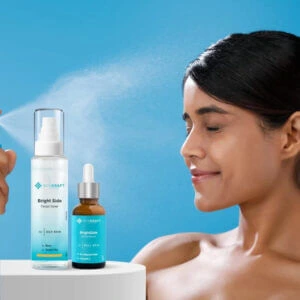A healthy skin barrier is essential for keeping your skin hydrated, smooth, and protected from environmental stressors. Once your skin barrier is compromised, issues such as dryness, irritation, and sensitivity can arise, leading to further complications. While repairing the skin barrier is crucial, maintaining it is equally important to prevent damage in the future. Below are detailed tips on how to maintain a healthy skin barrier for long-term skin health.

1. Use Gentle Cleansers
Cleansing is an essential part of any skincare routine, but using harsh cleansers can strip away your skin’s natural oils and weaken the barrier. Opt for a gentle, sulfate-free cleanser that cleans without disrupting the skin’s natural lipid layer. Look for cleansers with ingredients like ceramides, hyaluronic acid, or glycerin, which help maintain moisture while removing dirt and impurities.
Why This Matters: Harsh soaps and strong exfoliants can weaken your skin’s barrier, making it more susceptible to dryness and irritation. A mild cleanser will ensure your skin is clean but still protected.
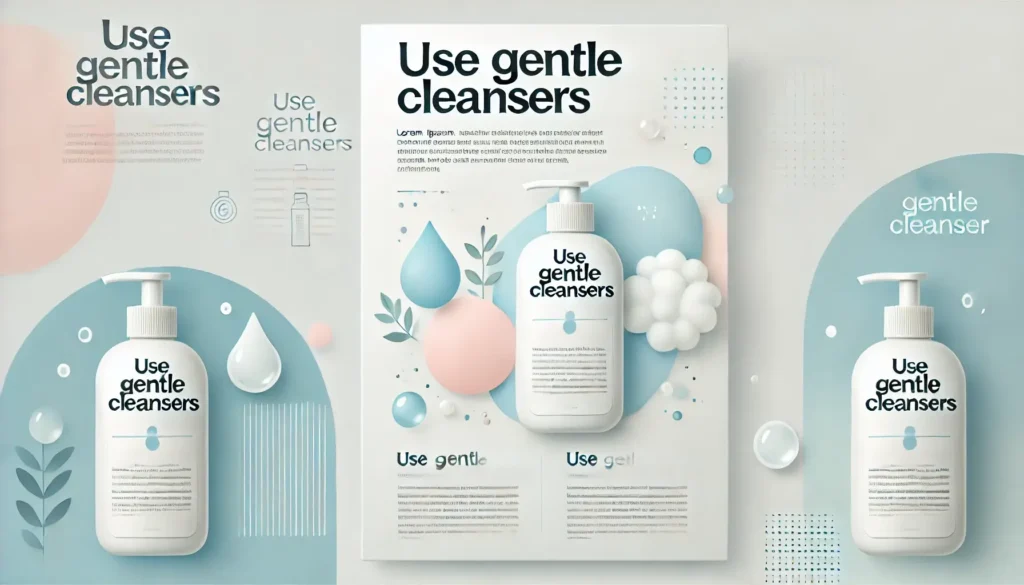
2. Moisturize Daily
Moisturizing is key to keeping the skin barrier healthy. A good moisturizer replenishes the lipids and water that the skin barrier needs to stay hydrated and protected. Choose a moisturizer with barrier-repairing ingredients such as ceramides, fatty acids, and cholesterol, which are essential for rebuilding the barrier’s structure. Regular moisturization ensures the skin stays supple, plump, and less prone to irritation.
Why This Matters: Without proper moisture, your skin barrier will become dry and more prone to cracking, leading to sensitivity and inflammation. A consistent moisturizing routine can prevent this.
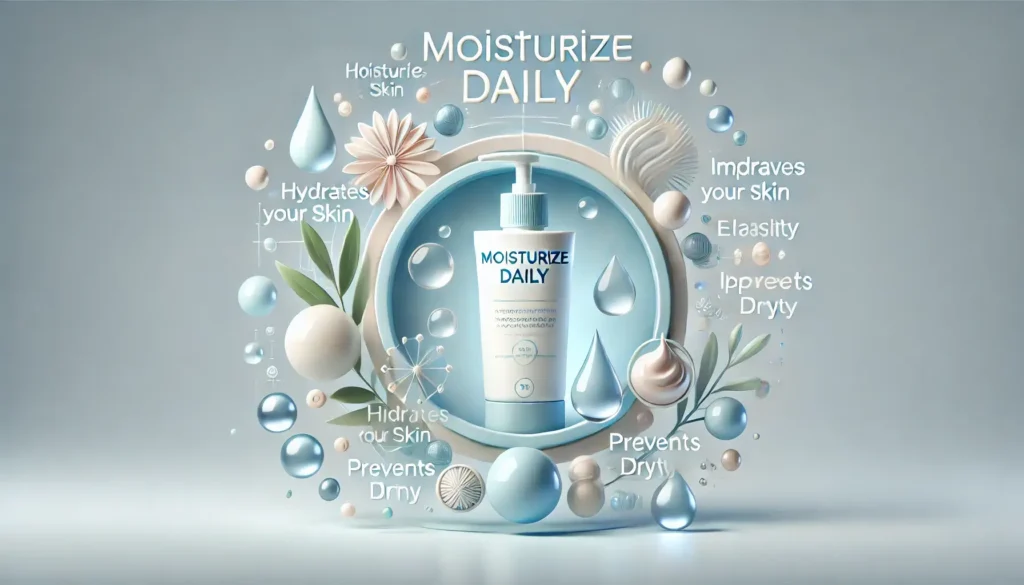
3. Limit Exfoliation
Exfoliation is important for removing dead skin cells, but over-exfoliating can strip the skin of its natural oils and damage the barrier. It’s best to limit exfoliating treatments, whether they are physical (scrubs) or chemical (acids), to 1-2 times per week, depending on your skin type. Always follow up with a moisturizer to replenish hydration after exfoliating.
Why This Matters: Over-exfoliating can lead to a weakened skin barrier, resulting in increased sensitivity, redness, and irritation. Moderate exfoliation helps maintain smooth skin without compromising the barrier.
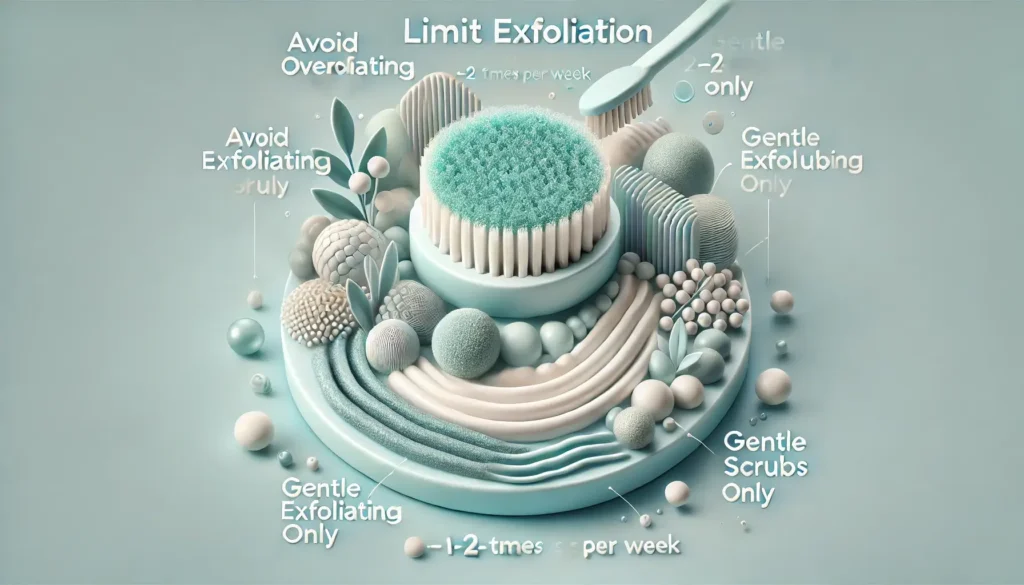
4. Protect Your Skin from the Sun for healthy skin barrier
Sun exposure is one of the leading causes of skin barrier damage. Harmful UV rays can weaken the skin’s natural defense system, causing premature aging, sunburn, and loss of moisture. Wearing broad-spectrum sunscreen with an SPF of at least 30 every day, even on cloudy days, is essential for protecting your skin. Reapply every two hours if you are outside for extended periods.
Why This Matters: UV damage breaks down the collagen and elastin in your skin, leading to a compromised barrier. Sunscreen acts as a shield to protect your skin from environmental aggressors.

5. Incorporate Antioxidants into Your Routine for healthy skin barrier
Antioxidants such as Vitamin C, Vitamin E, and green tea extract can help protect your skin from free radical damage caused by pollution, UV rays, and other environmental stressors. Incorporating an antioxidant serum or moisturizer into your daily routine strengthens your skin’s defense mechanisms and aids in barrier repair.
Why This Matters: Free radicals can cause oxidative stress, weakening the skin barrier. Antioxidants neutralize these harmful molecules, helping your skin stay strong and resilient.

6. Maintain a Balanced Diet
What you eat plays a significant role in the health of your skin. A diet rich in essential fatty acids, vitamins, and antioxidants can nourish your skin from within, helping to maintain a healthy barrier. Omega-3 fatty acids (found in fish, flaxseed, and walnuts), Vitamin C (from fruits like oranges and berries), and Vitamin E (from nuts and seeds) are particularly beneficial for skin health.
Why This Matters: Nutritional deficiencies can impair your skin’s ability to repair and protect itself, leading to a compromised barrier. A balanced diet provides the building blocks your skin needs to stay healthy.
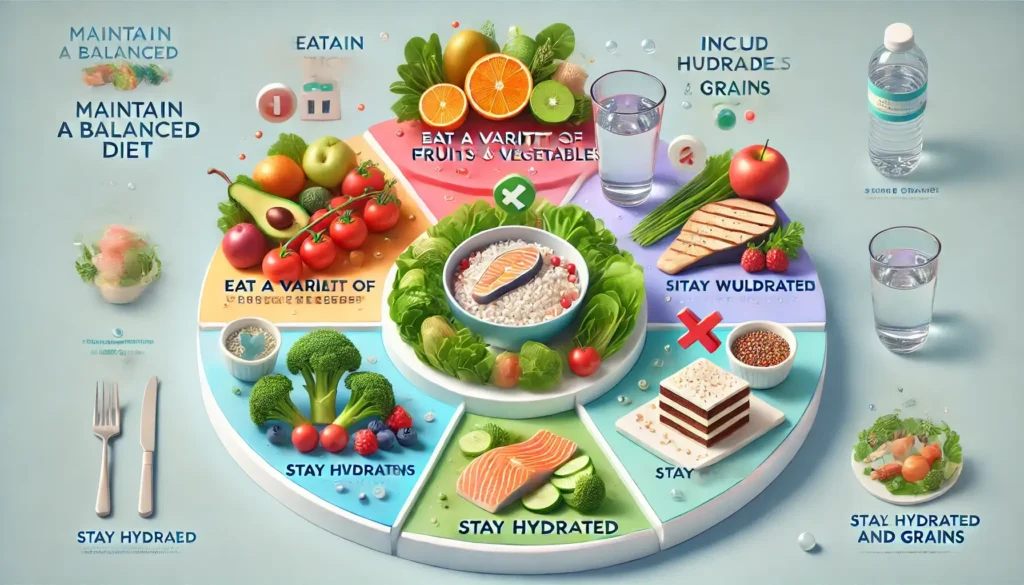
7. Avoid Harsh Skincare Ingredients
Certain skincare ingredients can irritate and damage your skin’s barrier, especially if used in excess. Avoid products that contain high levels of alcohol, sulfates, or fragrances, as these can dry out your skin and disrupt its natural barrier function. If you have sensitive skin, patch-test new products to avoid potential reactions.
Why This Matters: Irritating ingredients can cause inflammation and weaken your skin’s defenses, making it more prone to damage. Gentle, fragrance-free products are ideal for maintaining barrier health.
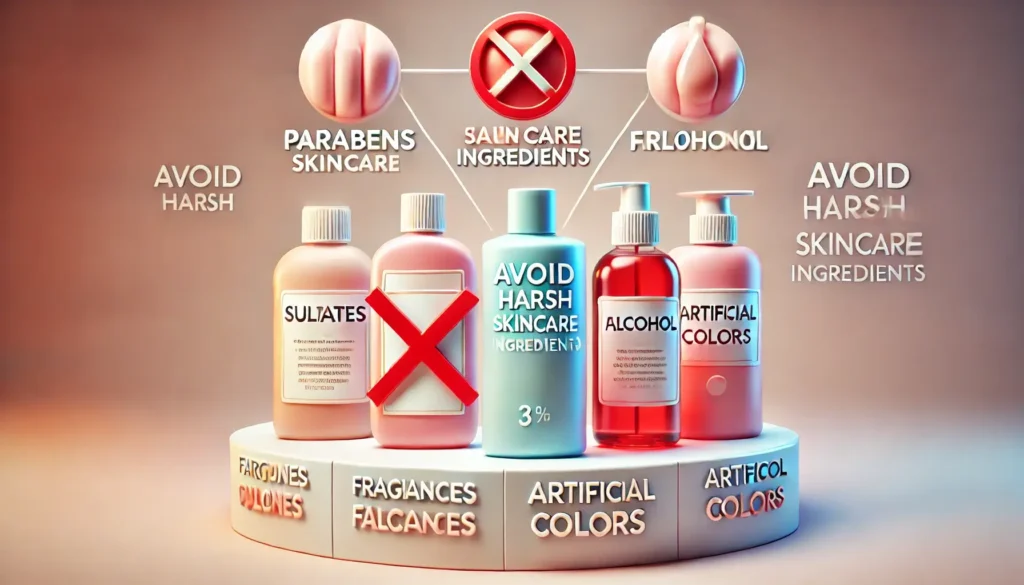
8. Keep Stress in Check
Chronic stress can negatively impact your skin by increasing inflammation and impairing its ability to repair itself. Engaging in stress-relieving activities such as exercise, meditation, and adequate sleep can improve your overall skin health and promote a stronger barrier.
Why This Matters: Stress triggers the release of cortisol, which can increase oil production and lead to a breakdown of the skin barrier. Managing stress is an essential aspect of maintaining skin health.

9. Stay Hydrated
Drinking enough water is crucial for keeping your skin hydrated from the inside out. Dehydration can lead to dry, flaky skin and a compromised barrier. Aim for at least 8 glasses of water per day to support your skin’s natural moisture levels and barrier function.
Why This Matters: Hydration helps maintain the skin’s plumpness and elasticity, preventing the barrier from becoming dry and prone to damage.
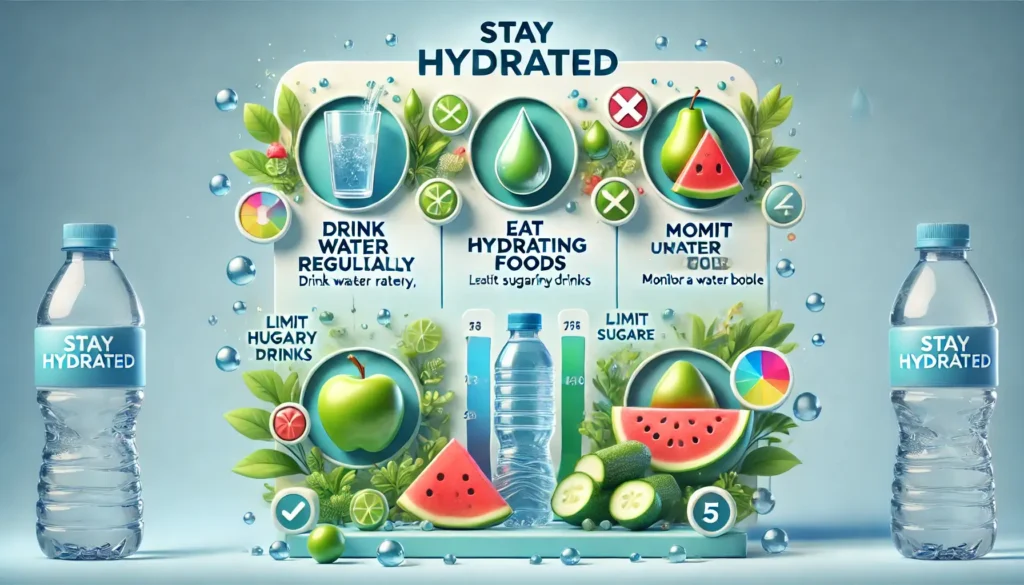
In the End (Healthy skin barrier)
Maintaining a healthy skin barrier is essential for keeping your skin hydrated, smooth, and resilient. By following these tips—using gentle cleansers, moisturizing regularly, protecting your skin from the sun, limiting exfoliation, and choosing the right products—you can keep your skin’s barrier strong and prevent future damage. Incorporating antioxidant-rich products and maintaining a balanced diet will also go a long way in promoting overall skin health. (Education)



